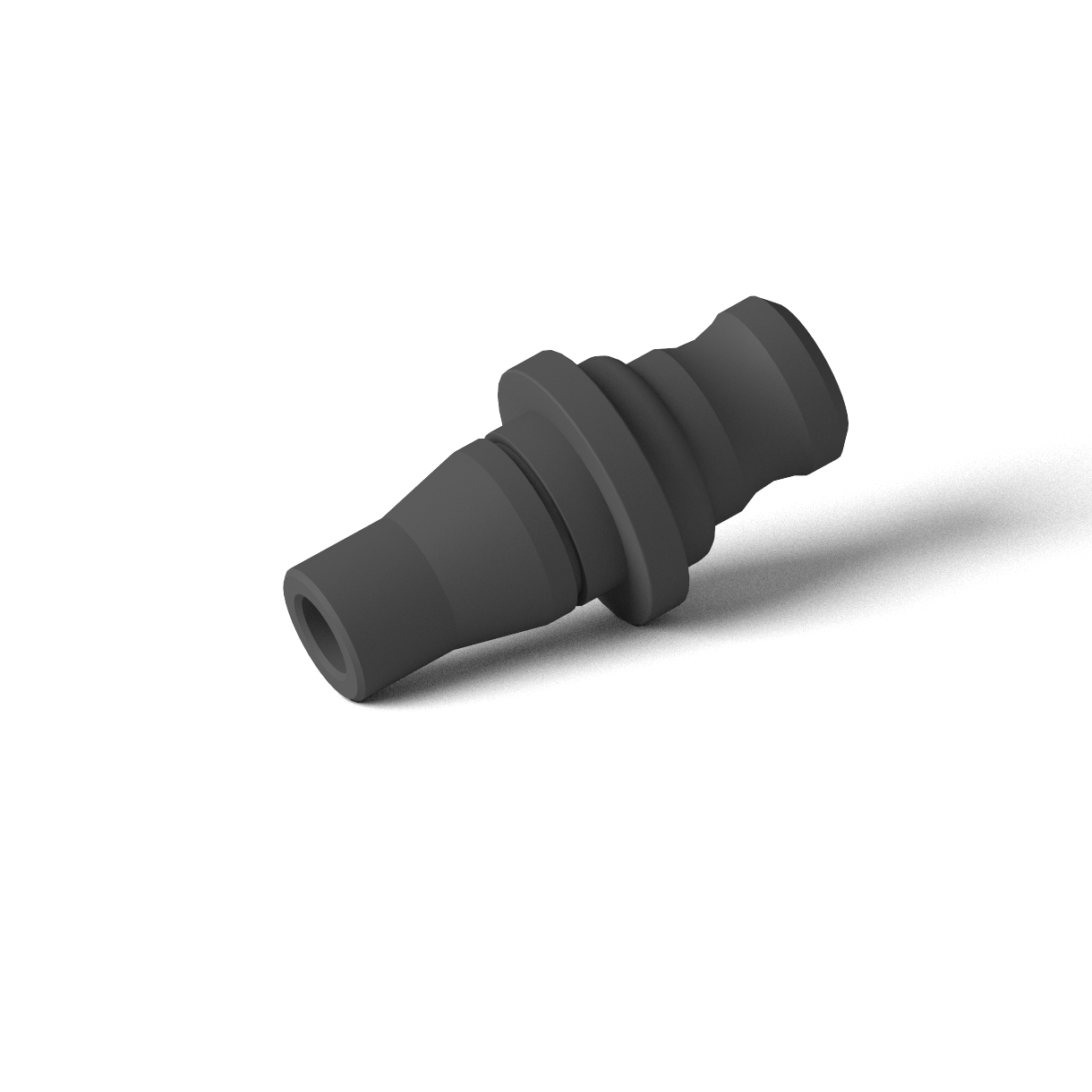Milling and turning plastic
A wide variety of plastics with different properties are used for CNC machining with turning and milling. Plastics are versatile, electrically insulating and easy to machine. They are generally characterized by significantly lower manufacturing costs than metallic materials.
Our product range includes inexpensive standard plastics, technical engineering plastics and high-performance plastics for specific requirements.

Our plastics
| Alloy | Material costs | Tensile strength N/mm² | Description |
|---|---|---|---|
|
PA6 |
€€ |
71 – 80 |
Versatile engineering plastic that is ideal for the production of structural and sliding elements under dynamic loads. It impresses with its good damping properties, outstanding mechanical properties, excellent sliding properties, high wear resistance and good machinability. |
|
PA66 GF30 |
€€€ |
112 – 135 |
Polyamide strengthened with 30% glass fiber, which has improved mechanical and thermal properties compared to unreinforced PA. It offers good damping properties, excellent mechanical strength and high heat resistance, but is less suitable for sliding applications. The material is easy to machine. |
|
PC |
€€€€ |
112 – 135 |
Transparent plastic that impresses with its high strength, impact resistance and rigidity. It offers very high dimensional stability, good electrical insulating properties, low water absorption and is easy to machine. Compared to PMMA, PC is less transparent and much more sensitive to scratches, which is why it is less suitable for sliding applications. |
|
PE-1000/PE-UHMW |
€€ |
20 – 25 |
Standard plastic with low strength and hardness, but high thermal expansion. Compared to PE-HD, it offers significantly higher toughness, better wear and sliding properties as well as outstanding suitability for applications in the ultra-low temperature range down to -270 °C. The material also impresses with its very good chemical resistance, good wear resistance, excellent damping properties and outstanding electrical insulating properties. |
|
PEEK |
€€€€€ |
100 – 116 |
High-performance plastic that impresses with its exceptionally high mechanical strength, rigidity and temperature resistance. It is characterized by its very high surface hardness, excellent wear resistance, high thermal load capacity, outstanding resistance to chemicals and radiation as well as good machinability. |
|
PE-HD |
€ |
20 – 30 |
Standard plastic with low strength and hardness as well as high thermal expansion. It impresses with its excellent chemical resistance, good impact strength, outstanding damping properties and very good electrical insulating properties. The material can be used down to -50 °C. |
|
PET white / black |
€€ |
white: 79 |
PET white is characterized by its excellent machinability, high toughness, very good sliding and friction properties and excellent chemical resistance. Due to its high strength, rigidity and good welding and bonding properties, the plastic is used in a wide range of applications. In addition to these properties, PET black offers increased UV protection, which makes it particularly suitable for outdoor use. |
|
PMMA (acrylic glass) Polymethyl methacrylate |
€ |
70 – 76 |
Also known as acrylic glass. Transparent plastic that impresses with its outstanding resistance to weathering and UV light. It offers excellent electrical insulating properties, high transparency and outstanding resistance to light, weathering and radiation. |
|
POM |
€€ |
70 – 78 |
Versatile engineering plastic that impresses with its high strength and dimensional stability. Thanks to its excellent sliding properties, it is ideal for applications with dry friction. POM also offers very good mechanical properties, high creep resistance and excellent machining properties. |
|
POM-C ESD |
€€ |
42 |
In addition to the advantages of regular POM-C, it offers additional electrical conductivity and protects against electrostatic charging. The material impresses with its good sliding properties, very good mechanical properties, high creep resistance and excellent machinability. |
|
PP-H |
€ |
21 – 37 |
Versatile standard plastic that has better mechanical properties than PE, but slightly lower chemical resistance. The material offers good chemical resistance, very good electrical insulating properties and a very low specific weight, but is susceptible to impact at temperatures below 0 °C. |
|
PPS GF40 |
€€€€€ |
83 |
Polyphenylene sulphide reinforced with 40 % glass fiber, which impresses with its high strength, rigidity and excellent thermal properties. The material also offers very good chemical resistance and high creep resistance, making it ideal for demanding applications. |
|
PTFE |
€€€€ |
15 – 35 |
High-performance plastic with an exceptionally wide thermal application range from -200 °C to +260 °C. Despite its comparatively low strength, the material impresses with its outstanding chemical resistance, excellent sliding properties, resistance to light, weathering and radiation as well as its non-flammability and excellent electrical insulating properties. |
|
PVC-U |
€ |
35 – 60 |
Also known as rigid PVC, it impresses with its very good chemical resistance, good sliding properties and solid mechanical properties. The material is flame retardant, offers excellent electrical insulating properties and is suitable for a wide range of applications. |
|
PVDF |
€€€€ |
35 – 55 |
High-performance plastic with good thermal resistance, which is significantly harder and stiffer than PTFE. The material is non-flammable and is characterized by excellent chemical resistance, resistance to light, weathering and radiation as well as good electrical insulating properties. |
Note: The provided results are reference values and may vary depending on the machining process and parts. These values cannot be directly transferred to finished parts. The suitability of the materials for a specific part must be verified by the user.
Turning and milling plastic
At Spanflug, you can procure your plastic turning parts and milling parts quickly and easily with an instant quote. You can send us extensive project RFQs directly by e-mail.